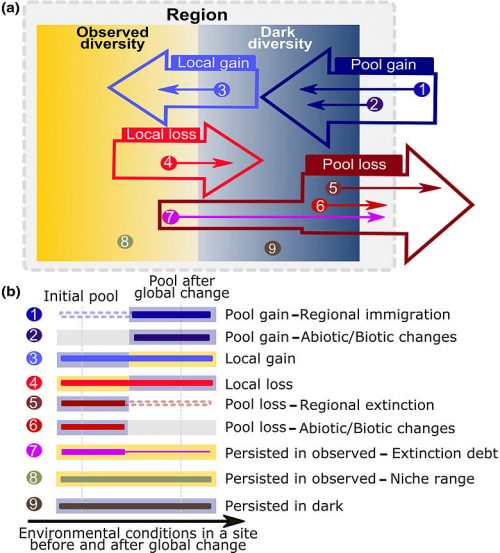New paper about time lags in observed and dark diversity

We are happy to announce that our PhD student Diego just published his first paper from his doctoral studies in Global Change Biology! Together with Carlos and Meelis they propose that considering temporal dynamics in both observed and dark diversity - set of absent but suitable species - is an important tool to better understand how global change affects biodiversity at local scales. With dark diversity, it is possible to decompose species gains and losses into two space-related dimensions: one associated with local dynamics (species moving between observed and dark diversity - local gain and loss) and another related to site‐specific species pool (species moving between dark diversity and region - pool gain and loss). As those gains and losses might happen with some time delay (i.e. extinction debt and colonization credit), the decomposition of species gains and losses creates "windows of opportunities" to either prevent regional extinctions, foreseen local colonization and invasions or enhance restoration activities. Considering temporal lags and species gains and losses in observed and dark diversity, provides a novel tool to examine biodiversity change in the Anthropocene. Also, check out Diego's Twitter thread about the paper with some amazing visual aids.
Trindade, D.P.F., Carmona, C.P. & Pärtel, M. 2020. Temporal lags in observed and dark diversity in the Anthropocene. Global Change Biology. https://doi.org/10.1111/gcb.15093